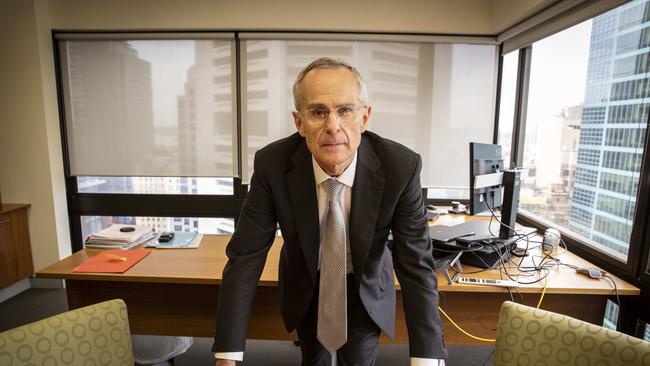COVID fuels 300 per cent increase in superannuation scams: ACCC
Scammers used numerous tricks to take advantage of COVID and the early super release scheme, sending complaints skyrocketing.

The number of superannuation scams have exploded during the COVID-19 pandemic, increasing by more than 300 per cent in 2020, according to the Australian Competition and Consumer Commission.
In a response to a House Economics Committee question on notice seen by The Australian the competition regulator said its Scamwatch division saw reports of scams related to super lift from 275 in 2019 to 1181 by October 29 2020, an increase of 323 per cent.
One common incident involved the government’s COVID-19 early release of super scheme, which has seen more than 4.7 million fund members withdraw in excess of $36.9bn from their retirement savings since April to support them through the pandemic.
The ACCC said it had received numerous reports of people receiving legitimate text messages from super funds saying their withdrawal request had been approved or actioned without them having done so.
In some cases, the person receiving the text message was not even a member of the fund in question.
“The recipient of the text was not necessarily the person who owned the super funds which the scammer was trying to access, as a part of the fraud in some cases included the changing of the victim’s mobile phone notification number,” the ACCC said.
Industry Super deputy CEO Matt Linden said the sector moved quickly to prevent bad actors from fraudulently accessing superannuation.
“The government moved quickly in March to establish the early release of super scheme as a response to the COVID-19-caused economic downturn, but there was always a risk that the scheme would create an opportunity for fraudsters to dupe members out of their retirement savings,” Mr Linden told The Australian.
“Working with the Australian Taxation Office and other regulators Industry Super funds were able to flag and stop a number of suspected fraudulent early release of super applications.”
In addition, the ACCC said that the Australian Taxation Office and Australian Federal Police were investigating instances of fraud in connection to early release of super.
However, a number of other common scams were not related to the scheme.
Another common scam involved a victim receiving promises of fake Woolworths and Coles vouchers of up to $300, ostensibly to “support people during COVID,” if they provided personal details, including their superannuation details.
Victims also reported receiving cold calls from individuals sometimes implying to be a government employee, who requested superannuation details for a number of reasons including so they will not be “locked out from their super under the new rules”.
Mr Linden urged fund members never to provide their superannuation details over the phone.
“Members should never provide their superannuation details if cold called and if you believe you have provided your superannuation information to a scammer contact your fund,” he said.
More traditional scams were also prevalent, such as “romance scams” where a scammer posing as a prospective romantic partner convinces an individual to transfer their superannuation to them, sometimes via a self-managed super fund.
But despite the number of super scam reports more than trebling in one year, the ACCC said reported losses fell 67 per cent, from $6.3m in 2019 to $2.059m in 2020 – although reported losses are not “necessarily instructive.
“$2.8 million of the 2019 losses were from a single romance scam in which the scammer convinced the victim to establish a self-managed super fund (SMSF), using this as a mechanism to transfer the victim’s funds into their own investments,” the ACCC said.
“With the exception of dating and romance or investment scams, most superannuation scams are aimed at stealing information or stealthily accessing people’s superannuation without their knowledge.”
More broadly, Scamwatch says it has received in excess of 5170 scam reports relating to COVID-19 as of December 1, totalling approximately $6.2m in losses.





